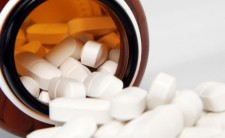The effects of chronic sleep debt on a person's general health have become better understood, as research increasingly links inadequate sleep (six hours or fewer a night) with a higher risk of everything from heart attacks to weight gain.
Search results
LigoCyte, a small biotech based in Montana has been working for years on a vaccine for norovirus (the so-called stomach flu, or cruise ship virus). And it looks like they may really have something.
Adding HPV (human papillomavirus) screening to conventional Pap tests appears to significantly improve the early detection of precancerous cervical abnormalities and reduce the rate of subsequent cervical cancer, according to a new study in The Lancet Oncology.
After seeing countless health scares over the years, it is hard to surprise us here at ACSH with something new. But our jaws dropped upon seeing a report claiming that radiation from the meltdown of Japan s Fukushima nuclear reactor in March somehow caused 14,000 people in the U.S. to drop dead.
In a unanimous decision, an FDA panel voted Tuesday to approve the first rapid, over-the-counter HIV test. Already in use in professional health care settings since 2004, the OraQuick HIV test uses a mouth swab and returns results in about 20 minutes. Although the home test has only a 93 percent accuracy rate, the FDA advisory committee determined that the benefits of the at-home test outweigh the risk of false negatives.
On his blog, TobaccoAnalysis, ACSH advisor Dr. Mike Siegel, professor at Boston University's School of Public Health, revisits the irony of the current tobacco harm reduction scenario. Namely, Dr. Seigel observes that anti-smoking groups continue to deny even the potential benefits of modified risk tobacco products, while major tobacco companies are actually leading efforts to introduce smokers to such products.
When we think about the health consequences of smoking, lung cancer is typically the first that comes to mind. But a new study confirms that many people globally are unaware of the other adverse effects associated with smoking specifically, the more common and especially dangerous effects of smoking on cardiovascular health.
It s the scare that keeps on scaring: The dry cleaning chemical PERC (perchloroethylene, also known as tetrachloroethylene) has been a target of activists and the EPA for most of the past decade. In fact, the EPA first began to investigate the solvent s purported adverse health effects in the 1980s. Just last week, an updated health assessment released by the agency categorized PERC as a likely human carcinogen; now environmental activist groups are sounding the alarms with renewed force.
Dr. Gilbert Ross in Forbes, February 17, 2012
How Health Regulators Are Killing American Smokers
In his latest blog post for Medical Progress Today, ACSH's Dr. Josh Bloom uses his unique brand of sardonic humor to lambaste California s Proposition 65.
Although he initially viewed the study as nothing more than nonsense, ACSH s Dr. Josh Bloom was dismayed to discover wide media pickup of a reckless report claiming that, somehow, 14,000 Americans had died as a result of the Fukushima Daiichi nuclear plant accident last March in Japan. So, in an op-ed posted yesterday on Forbes.com, he debunks the study authors bizarre claims.
Josh Bloom, Medical Progress Today 6/14/12, "About Face (Eating)"
In 1985 Michael Hovey, an organic chemist at du Pont in Wilmington cooked up a batch of 3-methylfentanyl, an illegal narcotic that is one hundred thousand times stronger than morphine, in his lab, ushering in the modern era of so-called "designer drugs".
EDITOR'S NOTE: We often address light-hearted themes in Friday Dispatch. Today, however, we have the unpleasant task and mission of exposing a very serious issue. In fact, we ve decided to devote today s Dispatch to a single story, that of the unjust termination of Dr. James Enstrom from his research position of 34 years at UCLA, based on independent research that didn t accord with the University s ideological agenda. We think the story s that important.
When I was in practice in the 1980s and 90s, the world was a simpler place. We internists had it figured out: Men had heart problems, often fatal, decades younger than their wives. It seemed obvious that a major factor in this advantage was the hormonal difference between the sexes. If not the estrogenic stew keeping women s hearts younger and healthier, what else could it be?
It wouldn't be a complete month without a study (or two) on coffee.
It s the law of unintended consequences. In the 1990s, the U.S. switched from a whole-cell vaccine for pertussis (whooping cough) in favor of the acellular Tdap vaccine, in which the a represents acellular which also protects against diphtheria and tetanus.
The American College of Physicians Clinical Guidelines Committee has released a new evidence-based clinical policy paper revising the guidelines for upper endoscopy use in most patients. During the procedure, known as EGD among clinicians for esophago-gastro-duodenoscopy, a tiny flexible camera called an endoscope is inserted down the patient s throat so the physician can visualize the upper GI tract: esophagus, stomach and duodenum.
It has long been said that salt contributes to high blood pressure and thus, the government s dietary guidelines recommend that the general population consume less than 2,300 milligrams of sodium per day (about a teaspoon of table salt). This relationship, while unequivocally accepted by almost all of the public health and cardiology authorities, is again being questioned; it may be the case that these recommendations are not warranted for everyone.
Pedestrians who text are four times less likely to look before crossing the street, cross at designated areas or obey traffic lights, according to a new study.
More may not always be better in the case of taking aspirin following a coronary artery intervention for acute heart attack. In fact, maintenance on low-dose aspirin may actually be the best approach. Following an intervention after a heart attack such as an angioplasty or a thrombectomy daily aspirin doses may range from 75 mg to 325 mg, but the optimal amount is still in question. (Such interventions are known as percutaneous coronary interventions, or PCI).
In some alarming news, federal health officials have announced that the sexually transmitted infection, gonorrhea, is becoming dangerously close to being untreatable.
According to the results of a 2007 National Health Interview Survey, over 14 million Americans reported using acupuncture as part of their health care up from just 8 million in 2002. But while acupuncture may be growing in popularity, scientists continue to question the efficacy of this ancient practice.
 Survivors of colon cancer whose diets are heavy in complex sugars and carbohydrate-rich foods are more likely to have a recurrence of the disease than are patients who eat a better balanced diet, according to a new study from the Dana-Farber Cancer Institute.
Survivors of colon cancer whose diets are heavy in complex sugars and carbohydrate-rich foods are more likely to have a recurrence of the disease than are patients who eat a better balanced diet, according to a new study from the Dana-Farber Cancer Institute.
 An estimated one in every 15 hospital patients receive more than the safe daily dose of the common pain-reliever acetaminophen, according to a new study.
An estimated one in every 15 hospital patients receive more than the safe daily dose of the common pain-reliever acetaminophen, according to a new study.
Researchers continue to investigate how to help smokers kick their lethal and addictive habit. Unfortunately, two recent studies involving nicotine patches and individualized therapy fall vastly short of a breakthrough.
Pagination
ACSH relies on donors like you. If you enjoy our work, please contribute.
Make your tax-deductible gift today!


